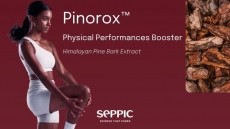Bilberry consumption linked to better cholesterol levels: Study

One hundred and fifty grams per day of bilberries for six weeks were associated with statistically significant decreases in total cholesterol levels (6%), LDL cholesterol (7%), triglycerides (27%), while HDL-cholesterol levels increased 6%, according to findings published in Nutrition Research.
“The present study shows that even a short period of regular consumption of whole wild bilberries, preserved through minimal processing (frozen), is associated with an improvement of the lipid profile in humans,” wrote the researchers.
“The results obtained in the present work support the hypothesis designed to investigate the study that the regular consumption of bilberries can contribute to beneficial effects on CVD risk reduction, such as decreasing LDL-C and TG and increasing HDL-C.”
Study details
The study involved 36 healthy men and women assigned to consumed 150 g of bilberries per day for six weeks. There was no control or placebo group, which is listed as a limitation by the researchers.
“The amount of bilberries consumed by volunteers was selected to be comparable to that of other studies, taking into account the processed form used in other studies such as fresh/frozen/dried, juice, smoothie, beverages, or capsules,” explained the researchers.
Results showed that, in addition to the blood lipid profile improvements, bilberry consumption was also associated with improvements in blood glucose levels (9%), albumin levels (5%), and gamma-glutamyltransferase levels in the liver (9%), compared to baseline levels.
When the researchers divided the participants by gender they observed that significant improvements were observed for all measures in men except LDL cholesterol, which increased slightly.
“Thus, the regular intake of bilberries can be important to reduce CVDs risk, by decreasing LDL-C/TG and increasing HDL-C,” concluded the researchers.
Source: Nutrition Research
Published online ahead of print, doi: 10.1016/j.nutres.2016.11.010
“Intake of bilberries (Vaccinium myrtillus L.) reduced cardiovascular diseases risk factors through positive influences in lipoprotein profiles”
Authors: M. Habanova et al.

















